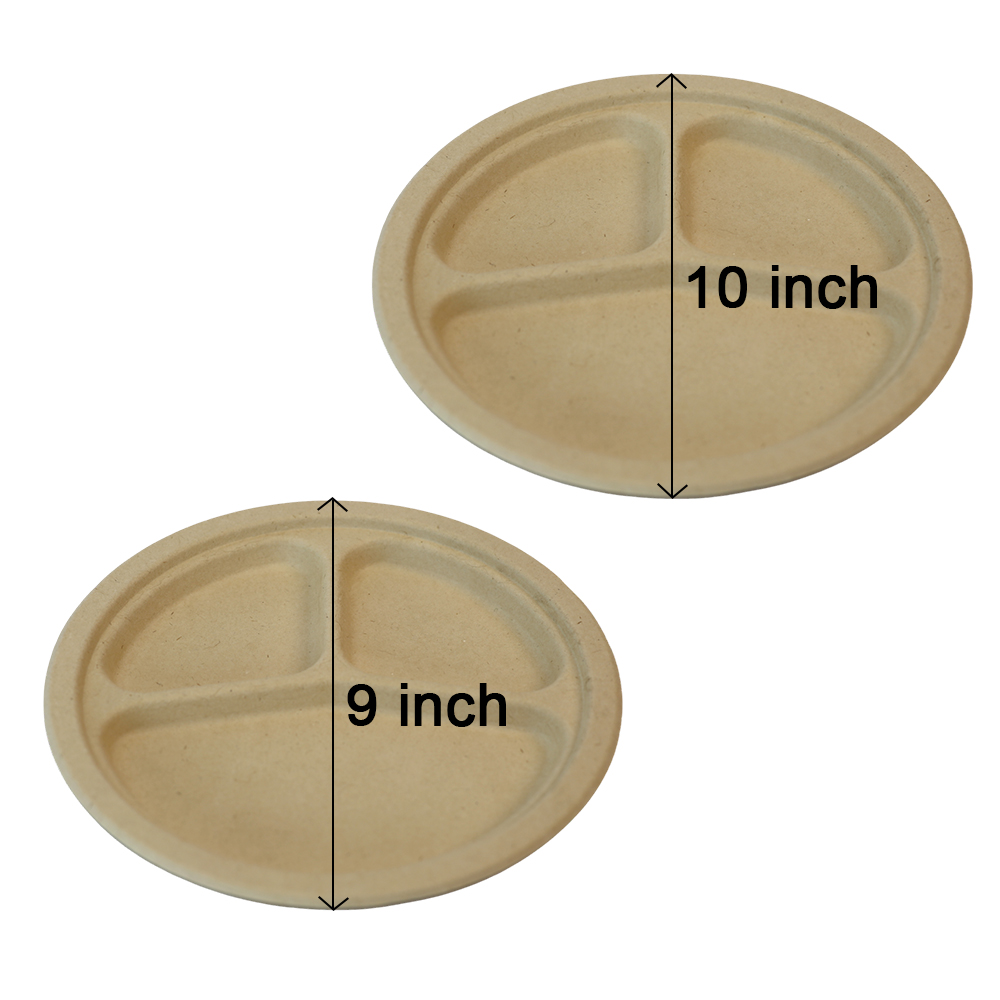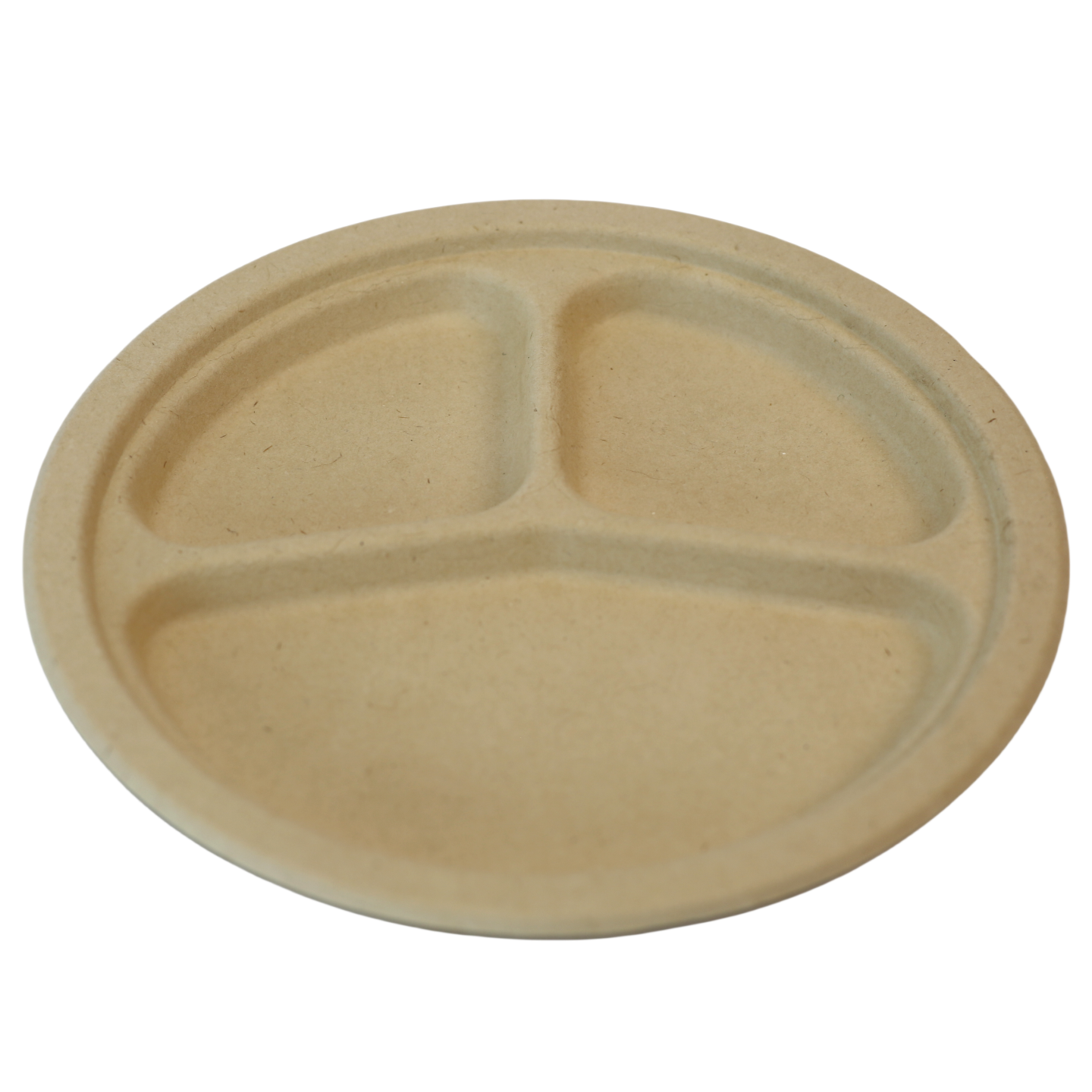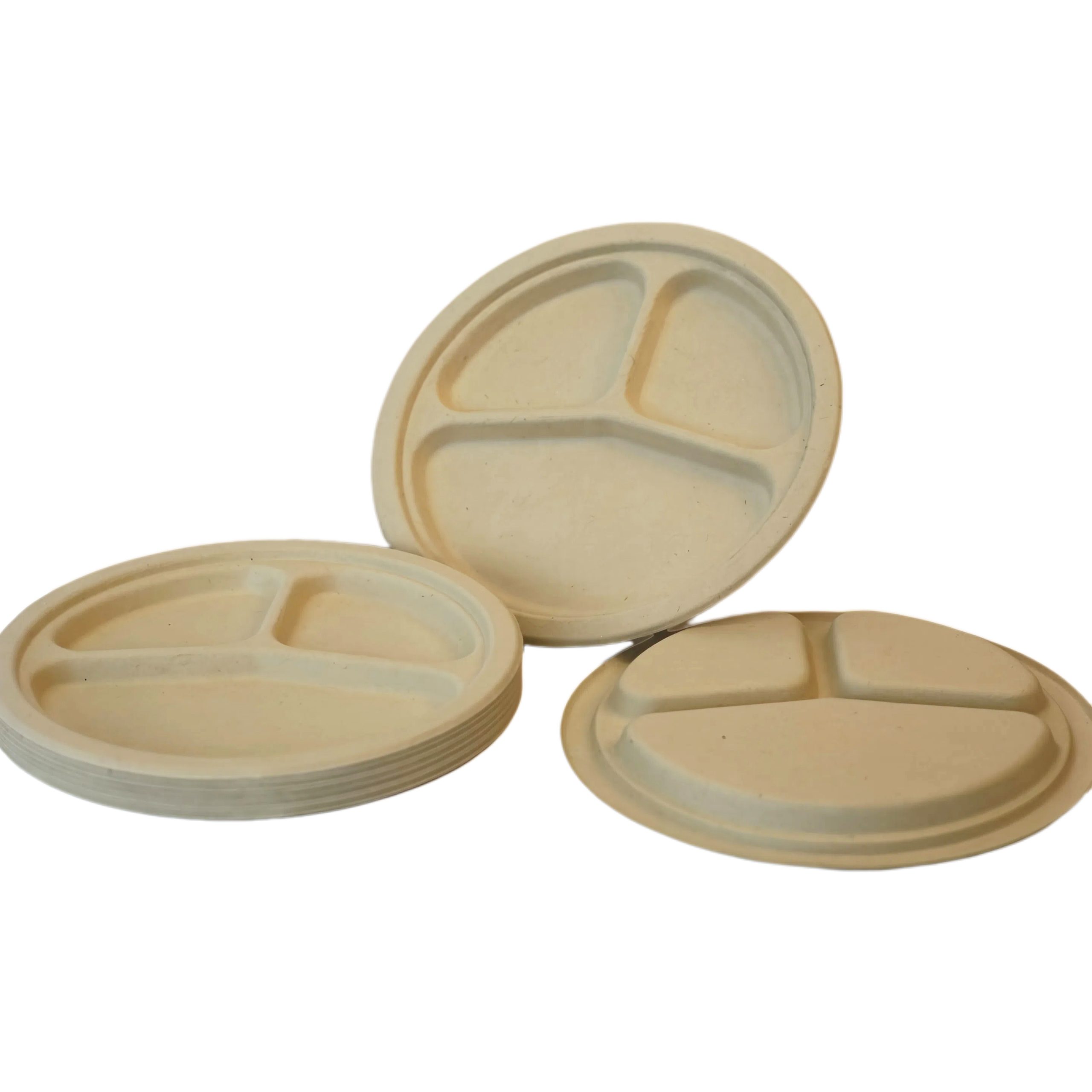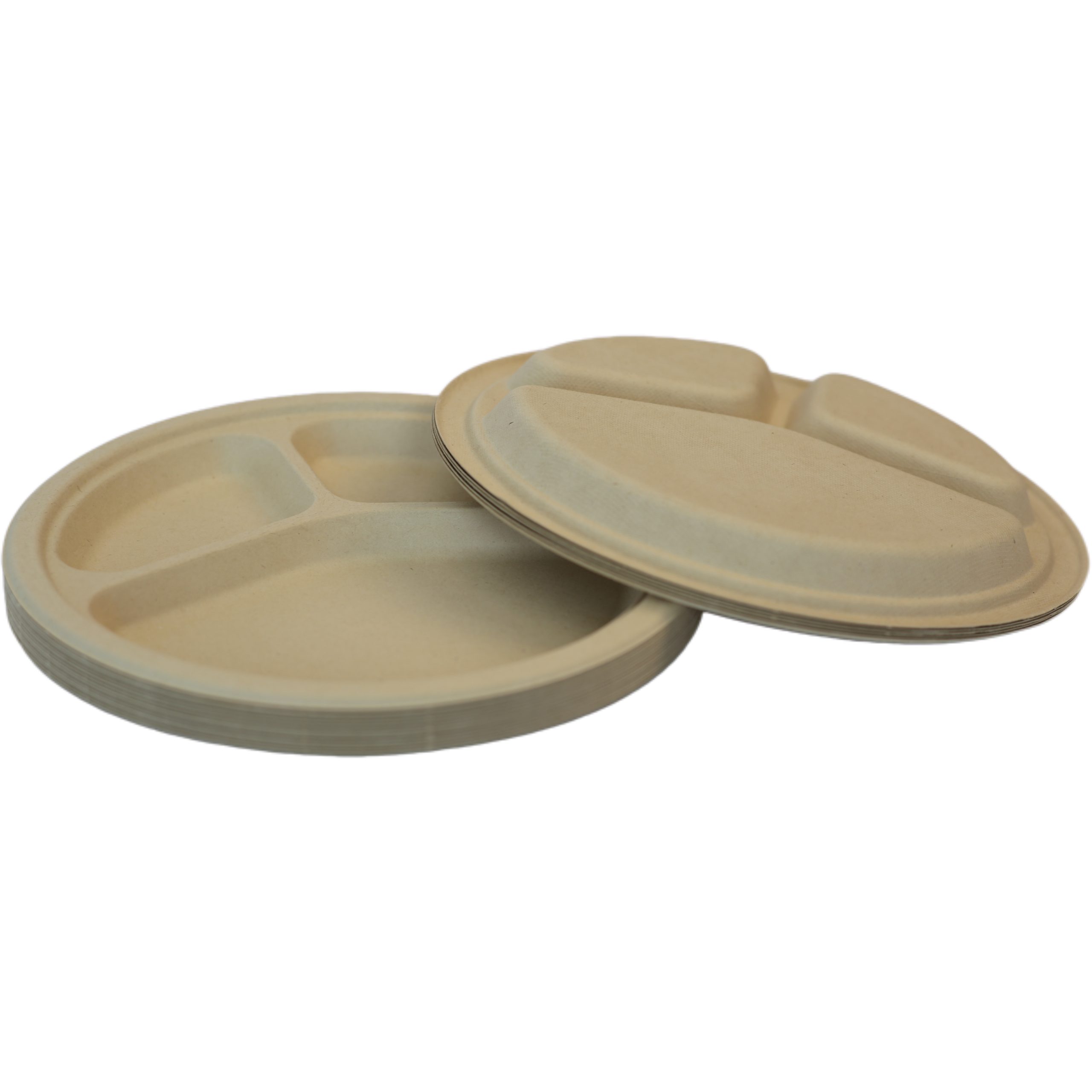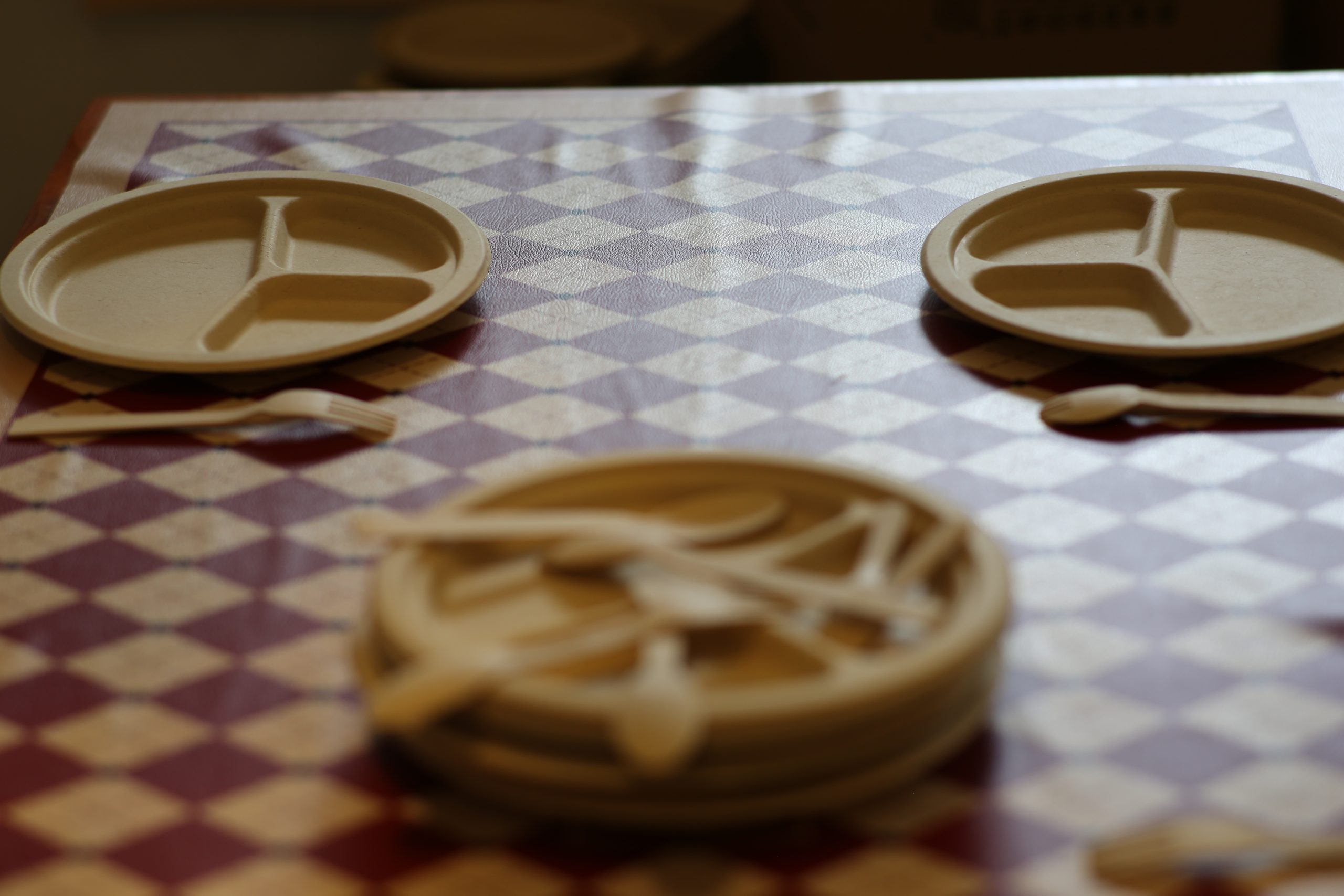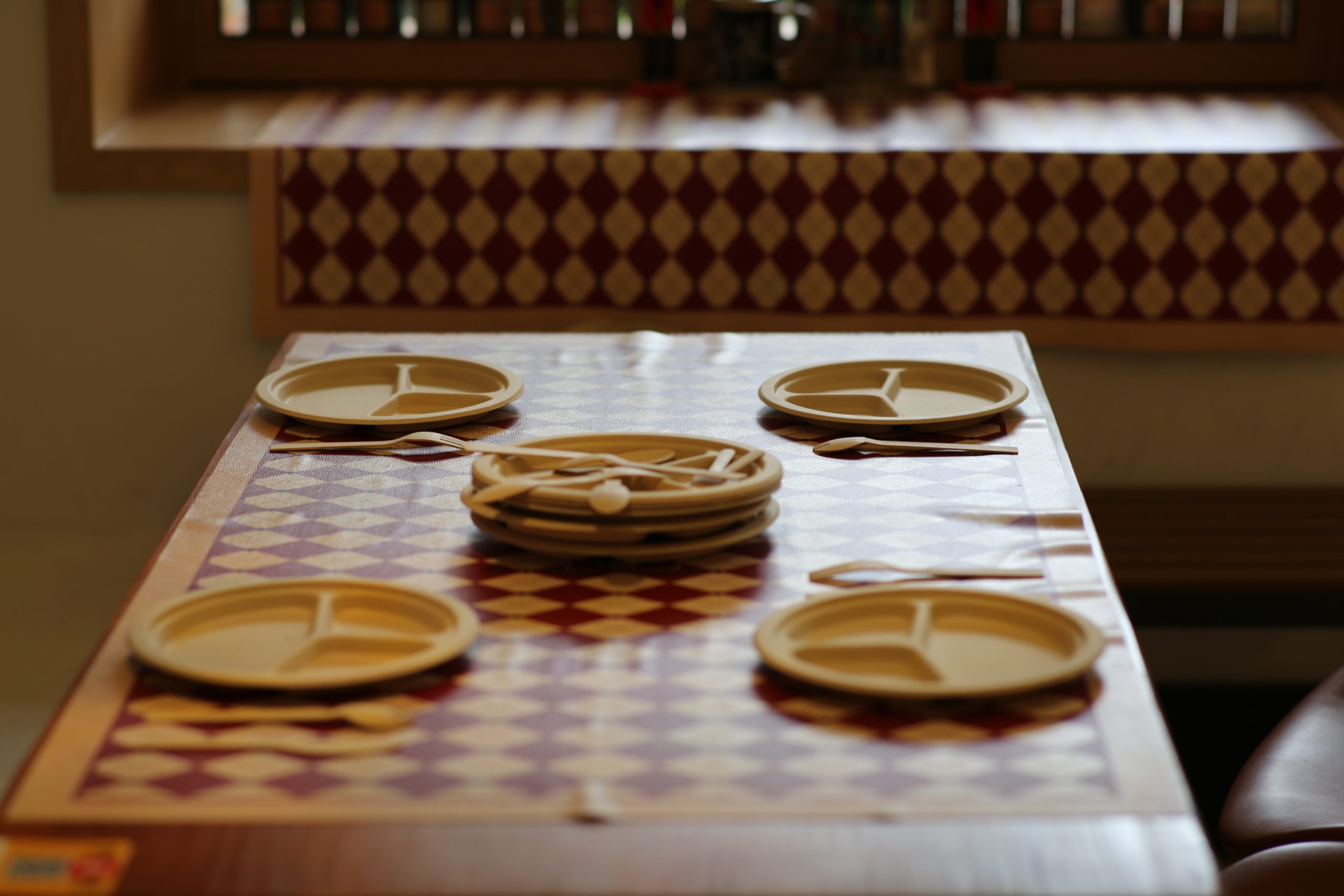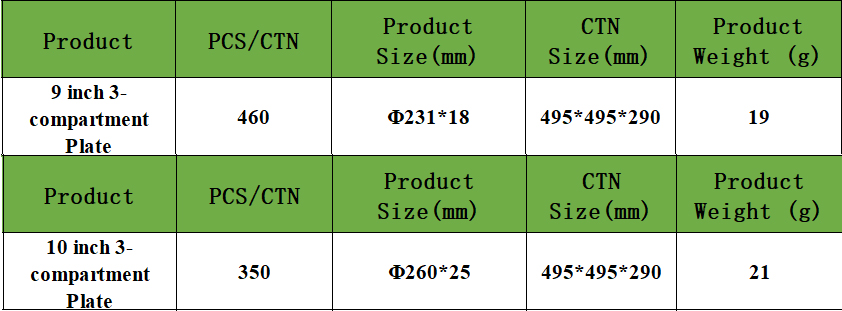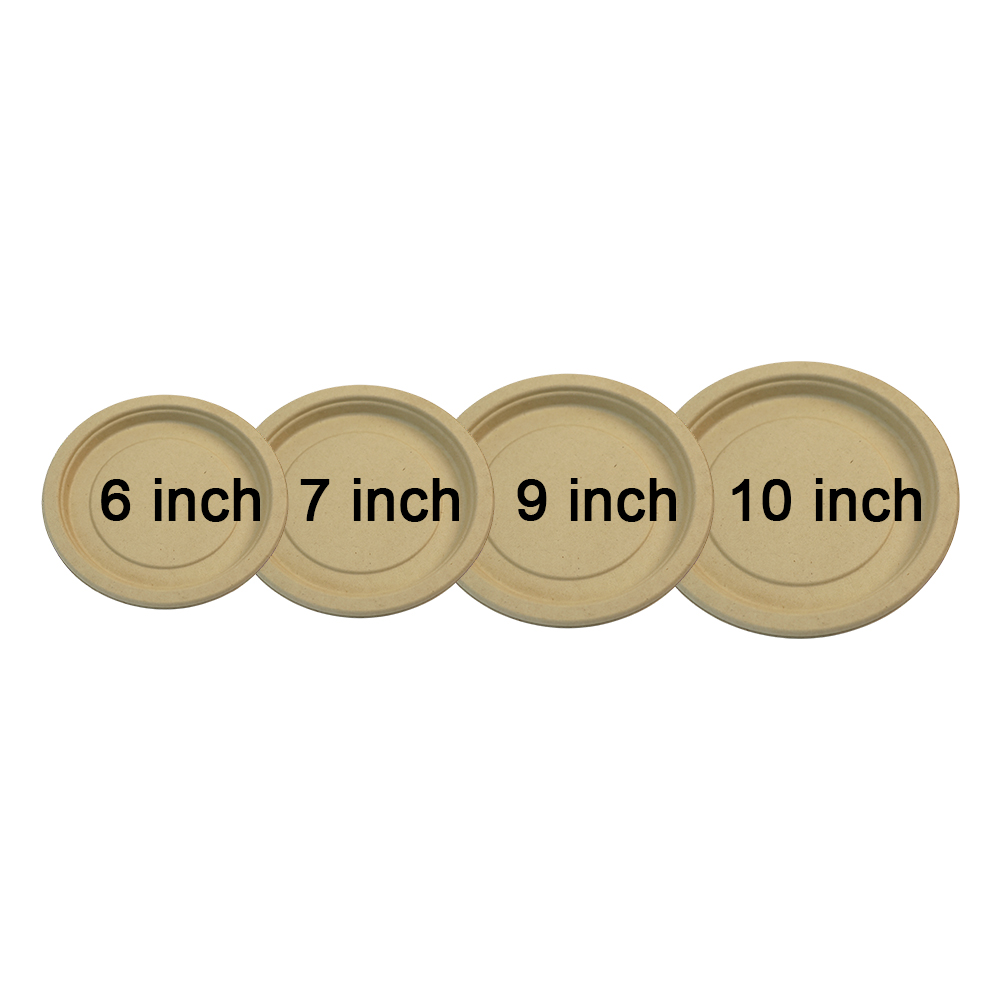3-Compartment Bamboo Fiber Plates 9 & 10 Inch | Wholesale Eco Tableware
Microwave-safe, leak-resistant, and built for catering & takeout.
Eco-friendly alternative to plastic — available in bulk 9″ & 10″ sizes.
MOQ starting from 50,000 pcs |Custom logo printing |Lead time: 25–30 days
Product Features:
🟢 3 Compartments, Zero Mess: Keep meals separated and fresh — perfect for catering, meal delivery, and restaurants.
🟢 Microwave & Freezer Safe: Withstands -50°C to 200°C for flexible storage and reheating.
🟢 Heavy-Duty Design: Durable structure resists leaks, grease, and breaking — ideal for hot meals and sauces.
🟢 Eco-Friendly Material: Made from renewable bamboo fiber, fully biodegradable & PFAS-free.
🟢 Custom Branding: Add your logo, packaging to strengthen brand identity.
🟢 Bulk Ready: Stable production capacity & wholesale pricing for long-term B2B partnerships.
FAQ
Are your bamboo fiber tableware free from harmful substances like melamine or formaldehyde?
Yes — we test each batch for migration of formaldehyde, melamine and other allowed substances, ensuring compliance with international limits. We also provide reports for EU/US/UK food contact safety.
Can your products pass certifications like EN 13432, ASTM D6400, BPI, FSC?
Yes — we hold EN 13432 / ASTM / BPI / FSC certifications as applicable per region, and we share certificate scans with buyers. We also ensure labeling compliance to avoid “greenwashing” risk.
Are your products microwave/oven-safe or heat-resistant?
Yes, our bamboo fiber plates and bowls are heat-resistant up to ~220 °C. However, for prolonged high-temperature exposure (e.g. continuous oven baking), we recommend verifying with sample tests.
Can I request samples and third-party testing before placing a bulk order?
Certainly. We provide sample units + test reports (migration, durability, heat resistance) for buyer evaluation before bulk order.
What’s the maximum load, bend strength, or durability of these items?
We provide mechanical test data, such as bending strength, moisture absorption rate, and load-bearing limits, to ensure suitability for different use cases.
What if my local market enforces bans on certain types of bamboo-blended tableware?
We monitor regional regulatory actions, like the “Bamboo-zling” coordinated crackdown in EU, and ensure our products comply with EFSA / EU food contact rules.
Do you support custom logo printing, custom packaging, and private labeling?
Yes, we support OEM/ODM customization. Minimum quantity and lead time vary by design. Detailed customization spec options will be shared after inquiry.
What is the cost premium compared to plastic counterparts?
Eco tableware currently costs ~20–50% more than single-use plastic (dependent on material, certification, region). We help buyers evaluate total cost, including waste management, brand premium, regulatory compliance.
